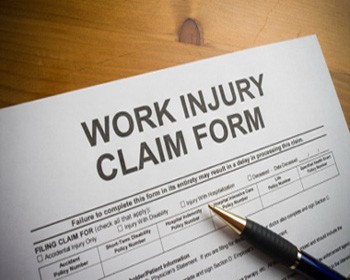
We’re Here for You
Contact Us for a Free Case Evaluation
Our team is ready to listen day or night – 7 days a week, so contact us now to see how we can help you on the road to recovery.
Any type of environmental exposure that occurs over time is usually by definition not an “accident,” but rather potentially an occupational disease.
Unless the occupational disease falls into certain very specific categories, in order to prove that a disease is compensable, one must show by clear and convincing evidence that it is a disease arising out of employment to which the general public is not equally exposed.
Sunburn, even severe, is typically not thought of as a compensable type of injury, simply because it is so common in the public, and although we will discuss the hazards of sun exposure, it is highly unlikely that a worker’s compensation case could be brought based on an injury from overexposure to the sun.
The CDC states that sunburn and skin cancer are two of the risks of working outdoors – for construction workers, agricultural workers, and other outdoor workers.
Sunlight provides an invisible source of radiation called ultraviolet (UV) rays. These rays can penetrate a worker’s skin and alter the structure of their skin cells.
The risk of ultraviolet exposure is the highest between 10:00 a.m. and 4:00 p.m. and any type of outdoor activity during these hours increases the risk of a sunburn, no matter the weather.
The CDC and NIOSH recommend that employees use the following sun exposure protections:
Extensive overexposure can cause age spots, premature wrinkles, and skin cancer. Workers who have too much sun exposure can also damage their eyes, which can lead to disorders like cataracts.
The CDC states that workers who do have sunburn may benefit from the use of pain relievers, lots of water, cool baths/cool wet cloths, and applying “a topical moisturizing cream, aloe, or 1% hydrocortisone cream.”
Workers should seek medical help if:
Unlike sunburn, there have been some cases of the Virginia Workers Compensation Commission as well as North Carolina Industrial Commission finding that injuries to workers from extreme cold such as frostbite may be compensable, either as an occupational disease or an injury by accident. Whether your case is compensable will depend on the specific facts of your case.
Some of the dangers of working in the cold, according to the Occupational Health and Safety Administration (OSHA) include:
Workers should wear layered clothing provided the clothing does not affect movement, waterproof and insulated boots, a hat, and protection for the face and other exposed body parts.
We hold employers and companies accountable for their negligence that caused your injuries to help you get the support you need for your recovery. Call or text 24/7 at 757-777-7777 or fill out our contact form here to get in touch with one of our attorneys.
Years Helping Our Clients
Convenient Offices
Team members ready to help
If you’ve been injured on the job, workers’ compensation insurance may entitle you to critical assistance like medical treatment, lost wages, and more. But insurance companies will put up an aggressive fight to resist paying you the compensation you need and deserve. Rutter Mills can help get you the money you deserve.
Contact Us for a Free Case Evaluation
Our team is ready to listen day or night – 7 days a week, so contact us now to see how we can help you on the road to recovery.


